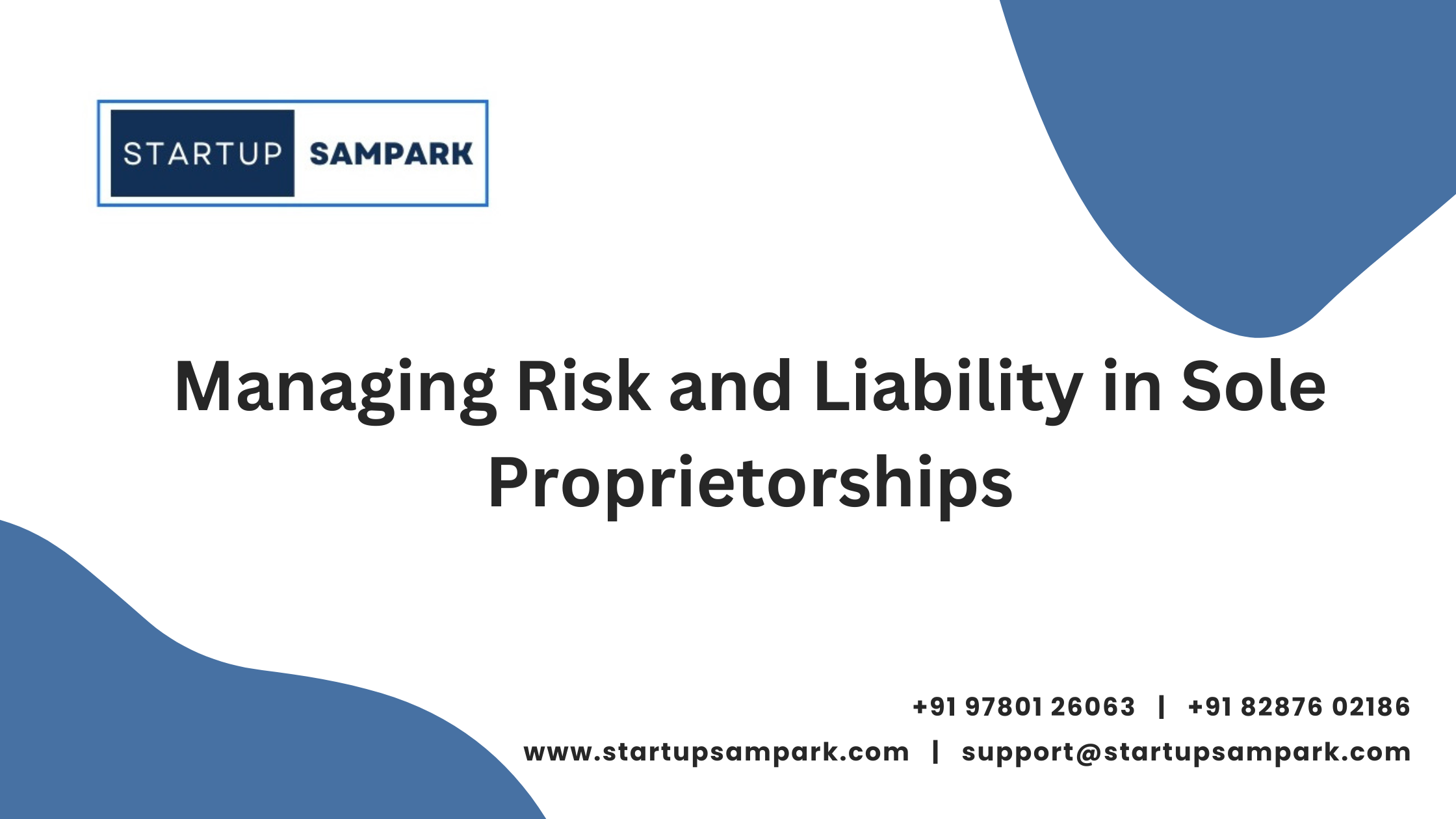Managing Risk and Liability in Sole Proprietorships
Understanding Risk and Liability in Sole Proprietorships
Sole proprietorships are one of the simplest business structures, but they come with significant risks and liabilities. In India, the law does not distinguish between the owner and the business in this structure, meaning the sole proprietor is personally liable for all debts and obligations of the business. This unlimited liability can pose a risk to the proprietor’s personal assets, such as property, savings, and investments, in case of legal disputes or financial losses. Understanding this inherent risk is the first step for sole proprietors to take proactive measures in managing liability effectively while safeguarding their personal and professional interests.
Importance of Insurance Coverage
One of the most effective ways to manage risks in a sole proprietorship is by obtaining appropriate insurance coverage. Insurance policies such as public liability insurance, professional indemnity insurance, and product liability insurance can protect the business from potential claims or lawsuits. Additionally, health and life insurance for the proprietor and key employees ensures financial stability in case of unforeseen circumstances. For businesses operating in high-risk industries, specialized insurance like fire, theft, or disaster coverage is crucial. Proper insurance acts as a safety net, minimizing financial exposure and allowing the sole proprietor to focus on growing the business with peace of mind.
-
 Startup Registration (DPIIT Recognition)₹8,850.00
Startup Registration (DPIIT Recognition)₹8,850.00
Separating Personal and Business Finances
Many sole proprietors in India overlook the importance of maintaining a clear distinction between personal and business finances, which can lead to unnecessary complications and increased liability. Using separate bank accounts for business transactions ensures accurate bookkeeping and helps demonstrate the legitimacy of the business in case of audits or legal scrutiny. This separation also makes it easier to track expenses, profits, and taxes, reducing the risk of financial mismanagement. By clearly demarcating personal and business finances, sole proprietors can better protect their personal assets and ensure that business obligations do not directly impact their personal wealth.
Adhering to Legal and Tax Compliance
Non-compliance with legal and tax requirements is a significant risk factor for sole proprietorships. Failing to obtain necessary business licenses, permits, or registrations can result in fines, penalties, or business shutdowns. Similarly, neglecting to file income tax returns, pay GST (if applicable), or adhere to professional tax requirements can lead to legal action and financial losses. Sole proprietors should stay informed about the laws governing their specific industry and seek professional assistance if needed. Regular audits and timely compliance with statutory requirements minimize the risk of regulatory issues and help maintain the credibility of the business.
Drafting Contracts and Agreements
To mitigate legal risks, sole proprietors must prioritize drafting clear and enforceable contracts for dealings with clients, vendors, and employees. Proper contracts define the terms of engagement, payment schedules, delivery timelines, and dispute resolution mechanisms. Without such agreements, disputes can escalate, leading to costly litigation. Employment contracts, in particular, ensure that employees adhere to non-compete clauses, confidentiality agreements, and defined responsibilities. Seeking legal assistance when drafting contracts ensures that the documents comply with Indian laws and adequately protect the interests of the sole proprietor.
Planning for Business Continuity and Succession
A sole proprietorship is inherently dependent on the proprietor, making it vulnerable to disruptions in case of illness, incapacity, or death. Sole proprietors can manage this risk by creating a business continuity plan and considering options for succession. This includes nominating a successor, automating key processes, and keeping detailed records of business operations. Additionally, creating a will or trust to manage business assets ensures a smooth transition to heirs or successors, reducing the potential for disputes or financial losses. By planning ahead, sole proprietors can ensure the longevity of their business and protect the livelihood of dependents and stakeholders.
Startup, India
-
 Startup Registration (DPIIT Recognition)₹8,850.00
Startup Registration (DPIIT Recognition)₹8,850.00















Post Comment